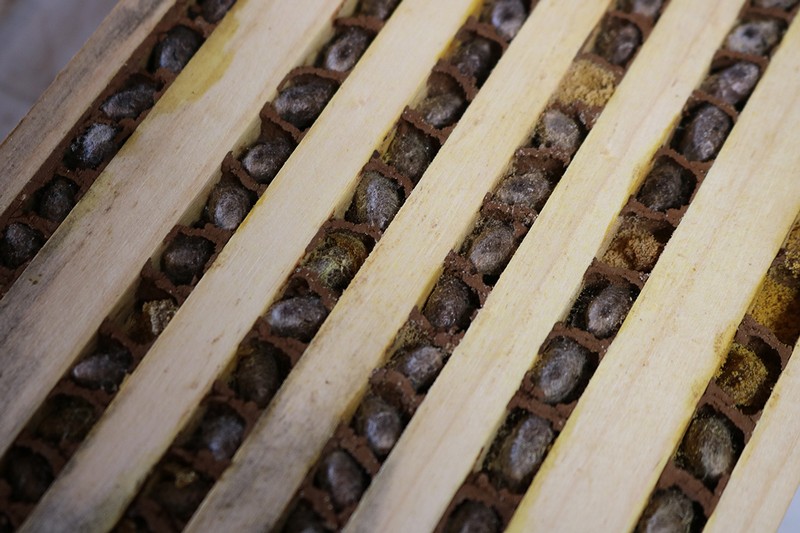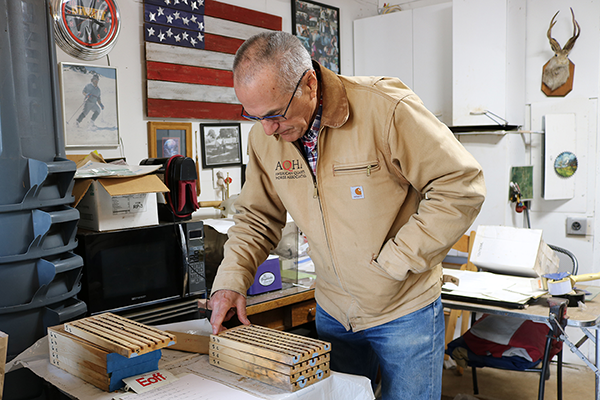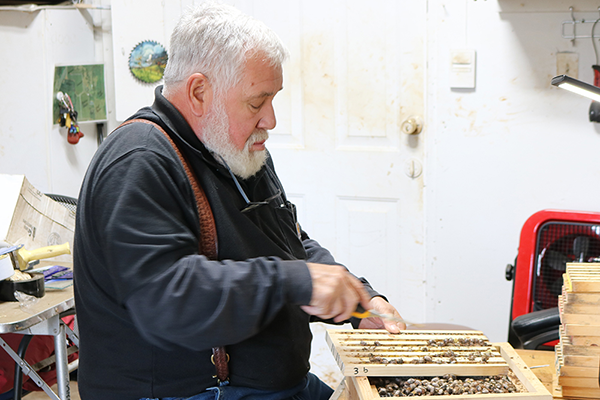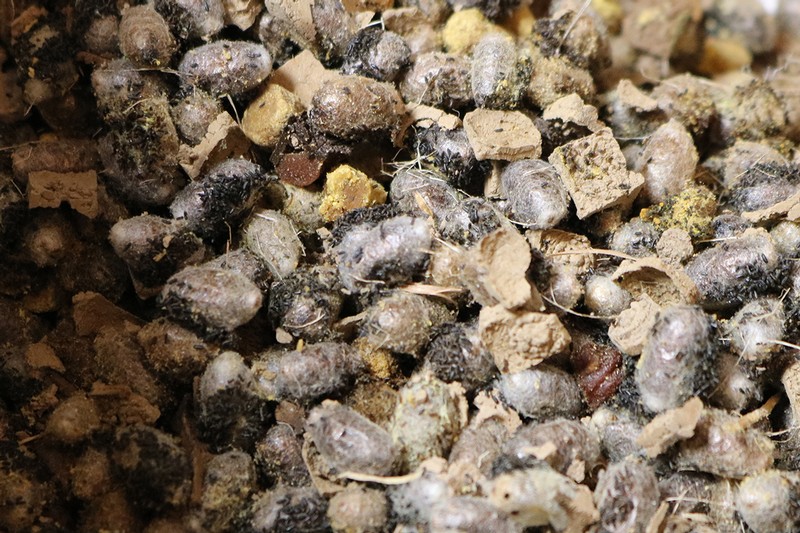Fall harvest includes “harvesting” mason bee cocoons to support our native bees
One of the unique ways Willamette Valley Vineyards practices sustainable vineyard stewardship is through our mason bee program. These insects play a crucial role in encouraging biodiversity and maintaining a healthy bee population.
This November, Randy Hillyer, Facilities Coordinator at the winery, and Stephen Paisley, Willamette’s “Bee Guy,” cleaned the mason bee boxes before storing them for the winter. This process included removing nearly 11,000 cocoons from 240 wooden trays and placing the cocoons in a refrigerator so the bees remain dormant until the spring.

Mason Bee Cocoons
Cleaning the bee box cocoons and trays is crucial to maintaining mason bee populations. Removing pests, mold, pollen, wasps and other materials from the trays ensures the bees have a clean, safe place to live and lay eggs. Washing the cocoons gives the bees a better chance of thriving in the spring.
Stephen and Randy will return the bees to their bee houses in late March or early April. Until then, the bees are hibernating inside their cocoons. As the temperature warms, the bees will emerge and get busy pollinating nearby plants and flowers.
Bees at the vineyard

Stephen Paisley, Willamette Valley Vineyards "Bee Guy"

Randy Hillyer, Willamette Valley Vineyards Facilities Coordinator
Since 2019, Stephen and Randy have been working on managing the mason bees and helping bolster pollinator populations.
Willamette first introduced mason bees at four locations in 2019, including Tualatin Estate Vineyard, Elton Vineyard, Bernau Estate Vineyard at Domaine Willamette in the Dundee Hills and the Estate Vineyard in the Salem Hills.
Stephen, a self-described “mason bee enthusiast,” brought the idea to Willamette Valley Vineyards after encountering mason bees for the first time about eight years ago at Jackson Bottom Wetlands in Hillsboro. He was fascinated by the insects.
“What’s really cool about mason bees is they’re native to the valley,” Stephen said, adding that it might surprise some that honey bees are not native pollinators.
About mason bees
Mason bees come in a blueish color and sort of resemble a large fly, Stephen said. This type of bee is known for its efficient and productive pollinating abilities. Unlike honey bees, mason bees are solitary — they don’t live in a hive. They are classified as hole-nesting bees because they build their nests in natural holes they find in their environment or, in this case, man-made holes.

Mason Bee Cocoons
Like other bee species, mason bee populations are declining. Stephen’s idea to reintroduce mason bees into the vineyards is an effort to support healthy populations of native pollinators.
Benefitting the environment
Our vines are self-pollinating, so the bees don’t directly impact our crop. However, bees are a crucial part of our everyday lives.
Mason bees are extremely efficient pollinators, making them a key component to farms and gardens everywhere.
“If we lost the pollinators, we’d lose half of our food,” Paisley said.
This spring, wine enthusiasts can take a close-up look at the mason bees in our vineyards when the boxes return and the bees emerge from their cocoons to help the surrounding environment flourish.